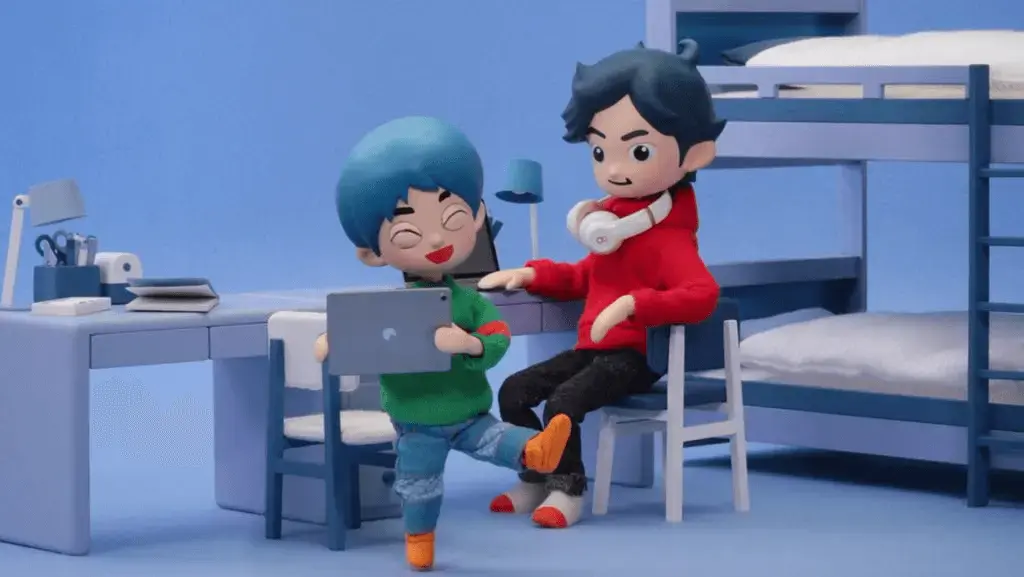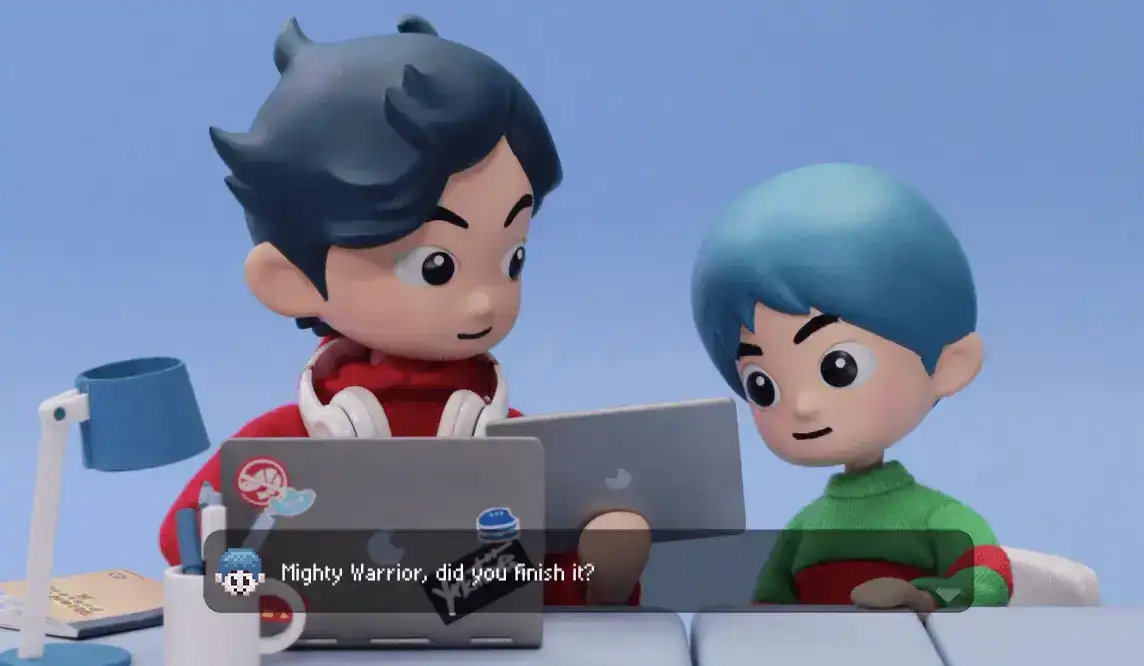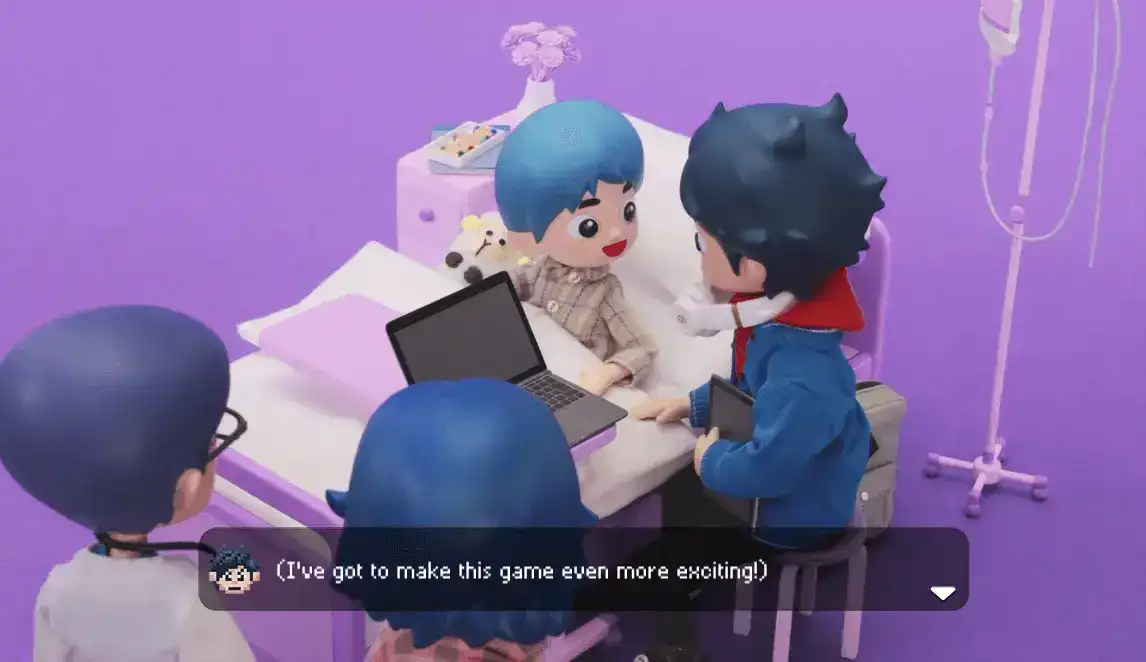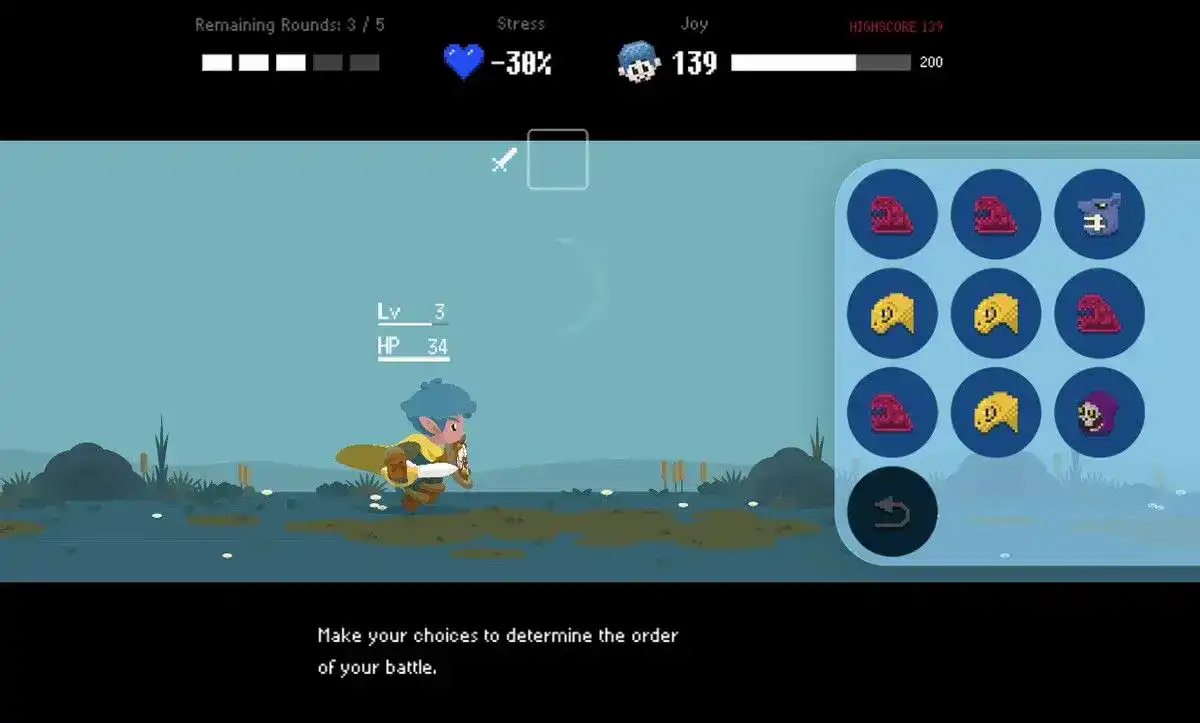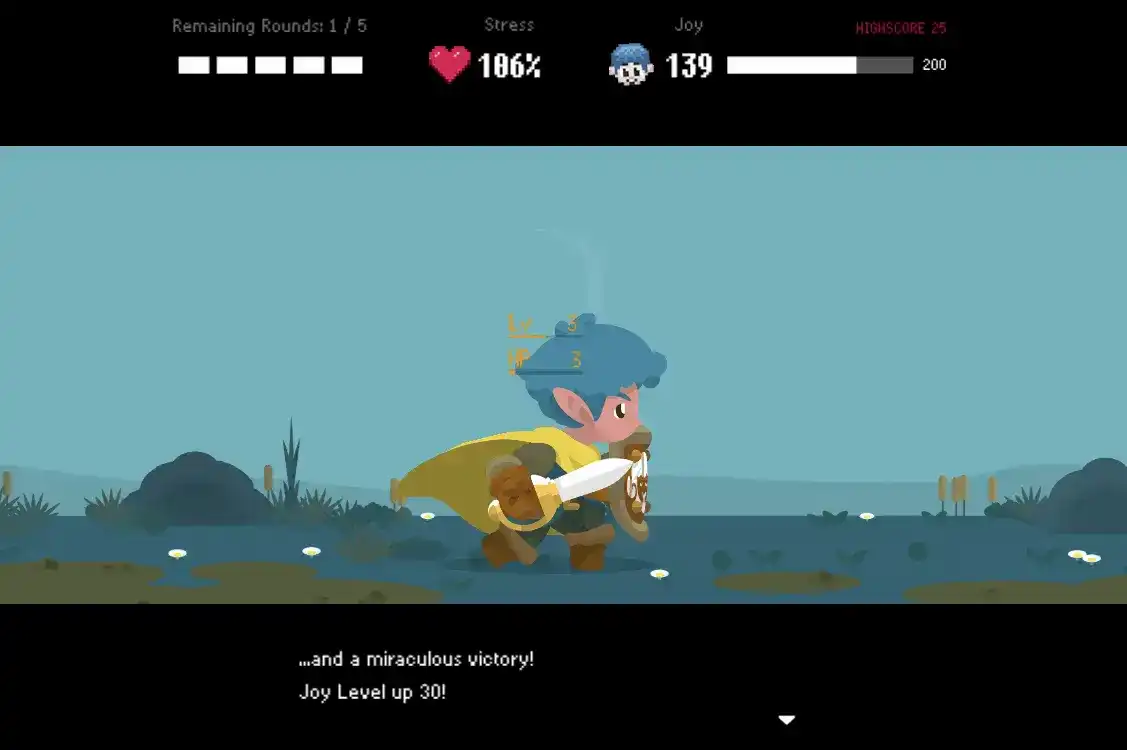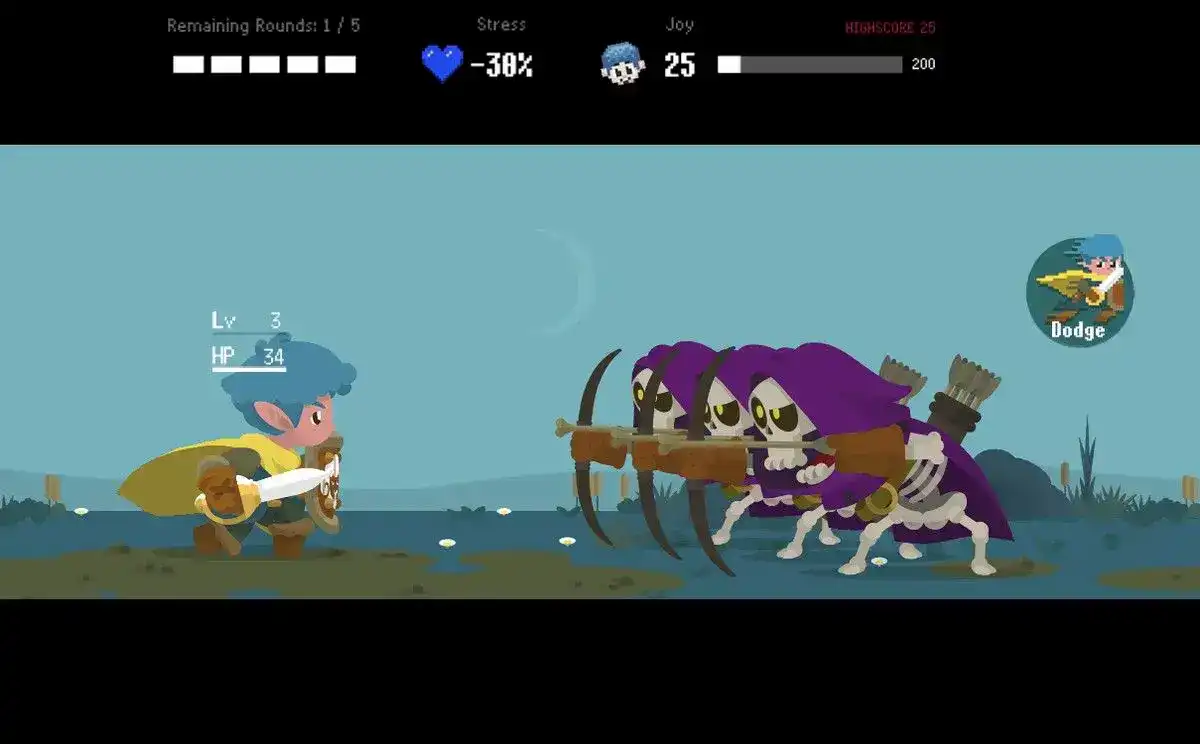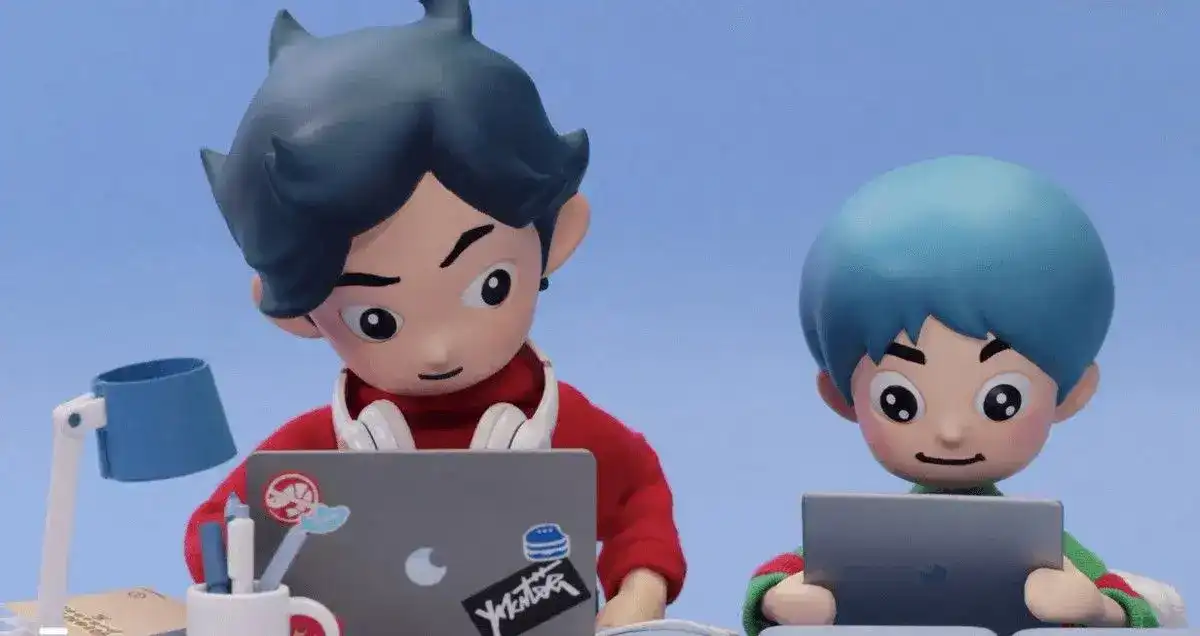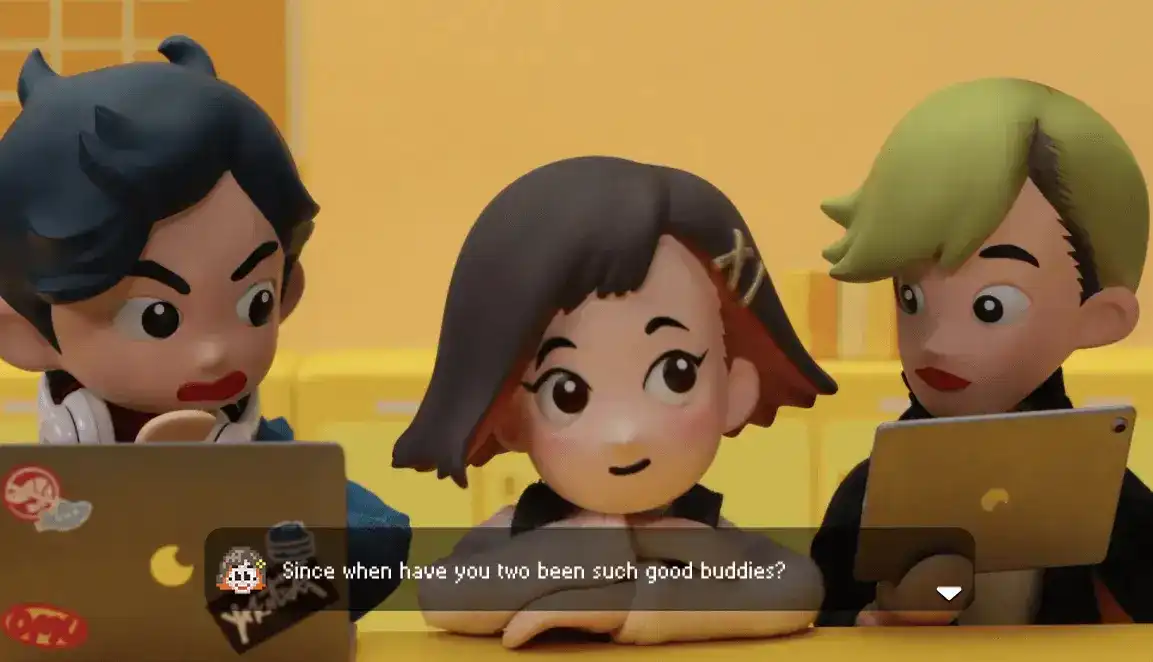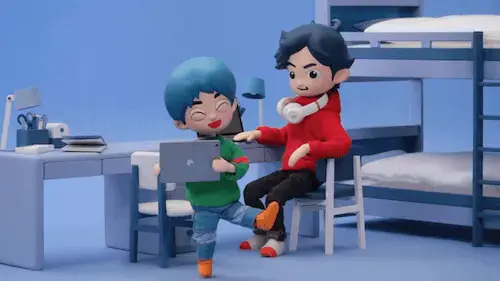The tale of two brothers who love games, developed by Oink Games, could not have been more heart-warming.
This simple game is half visual novel and half strategy RPG, where big brother Takeshi, a 14-year-old, programs a game called Mighty Warrior, which his seven year old brother Hiroshi can't wait to play. However little did Hiroshi know, the game wasn't finished yet.
To avoid disappointing Hiroshi, Takeshi decides to let his little brother play his unfinished product while secretly making it appear complete by acting as the enemies and enabling other elements of the game in real-time as Hiroshi plays. When it's time to play Mighty Warrior in each chapter of the story, that's where the visual novel ends and the embedded strategy RPG begins.
An All Too Familiar Tale of Sibling Love
Personally, this game was extremely relatable. My own little sibling and I have quite the age gap as well and a similar dynamic due to our closeness. On top of that, I program things, sometimes games... and she gets the same look in her eye as Hiroshi does when I ask her if she wants to try out my game or app or website (including this one!).
The representation of close, supportive siblings who love games was all too accurate and close to my heart, and I saw my story reflected back at me. I delighted in Hiroshi's ecstatic expressions and admiring gazes towards his brother and understood Takeshi's desire to not disappoint his number one fan.
The Making of a Mighty Warrior
The dynamic of the two brothers — Hiroshi's reverence of Takeshi, and Takeshi's love and adoration for Hiroshi — easily shines through as Takeshi tries his best to continually update Mighty Warrior with new features, monsters and skills, all so Hiroshi can play more levels the next day. Despite his efforts, his game does remain incomplete, which is where we, the player, come in.
Playing as Takeshi, who is sneakily making the game work behind his laptop, we decide the order and the quantity of monsters in each of the five rounds Hiroshi plays in that chapter of the story — basically, in gamer terms, we need to spawn the monsters correctly.
In order to keep Hiroshi happy, we'll have to keep his stress and joy levels above a certain threshold each day, so it's not as simple as letting him easily speed through or giving him the hardest time possible. The sweet spot is right in between, where Hiroshi has very low health but has not lost the battle.
The ultimate sweet spot is leaving Hiroshi's warrior character with 1-10 health points, so you'll have to choose monsters that are strong, but with only just enough power to barely let Hiroshi survive. The challenge increases his adrenaline — called "stress level" in the game — and his joy.
Causing him to die and lose the game will discourage him, and letting him get by without a scratch will bore him. If his character does end up dying, you'll have to start the five rounds over again unless you reached a checkpoint marked by a torch in the ground.
Each monster has distinct abilities and varying levels of strength. That, along with Hiroshi's growing in-game strength and newfound warrior abilities, like dodging, will have to be taken into consideration when figuring out which and how many monsters to put in his way.
A couple more surprises, in the form of powerful enemies and even allies, arise throughout the game as well, but those are too exciting to fully reveal here!
An Incomplete Game Indeed
Unfortunately, there's overall not enough substance in this mini-RPG to have much variation in gameplay and strategy. Although Takeshi does program in more monsters with different abilities over time, you can usually stick to the same few monsters with tweaks here and there in quantity and order.
Certain monsters can never be used because they're too strong or their ability effects don't give you any chance to act, leading them to feel like a waste of space or a bug, and I'm pretty sure it can't be blamed on the devs trying to intentionally make the game seem incomplete. Some monsters eventually just become cannon fodder to waste a turn or two, which wasn't very exciting.
Because the selection of usable monsters is limited and gameplay is generally the same thing over and over for each of the five rounds in every chapter of the story, the strategy RPG aspect starts feeling like a chore, despite a few exciting features Takeshi adds along the way.
As such, the game feels as incomplete and underdeveloped as it is... but as long as Hiroshi is happy, and his eyes continue to light up when seeing his brother carrying the tablet with Mighty Warrior loaded up, I'm happy.
Development of More Than One Kind
As the game is developed, the characters are developed too. Though Mighty Warrior lacked substance, the characters in the actual game of Takeshi and Hiroshi did not.
As the story progressed and Takeshi ran into obstacles in game development, his own character developed as he interacted with his supportive friends. He faced his weaknesses, realized his strengths despite losing confidence, learned a lot about game design, and made trustworthy friends along the way.
Only If You've Got Time to Spare
As much as Mighty Warrior gameplay and the monster selection portion was a chore, the story and Hiroshi's smile was well worth my time. The game is relatively short, being only three hours (two if you're quick about it unlike me). If you have a bit of time to spare, I wouldn't recommend against checking this game out.
If you're willing to sit through a bit of repetitive gameplay to get to the heart of a touching story, take a moment to learn more about the lives of Takeshi and his cute little brother Hiroshi, who loves games as much as we do.
